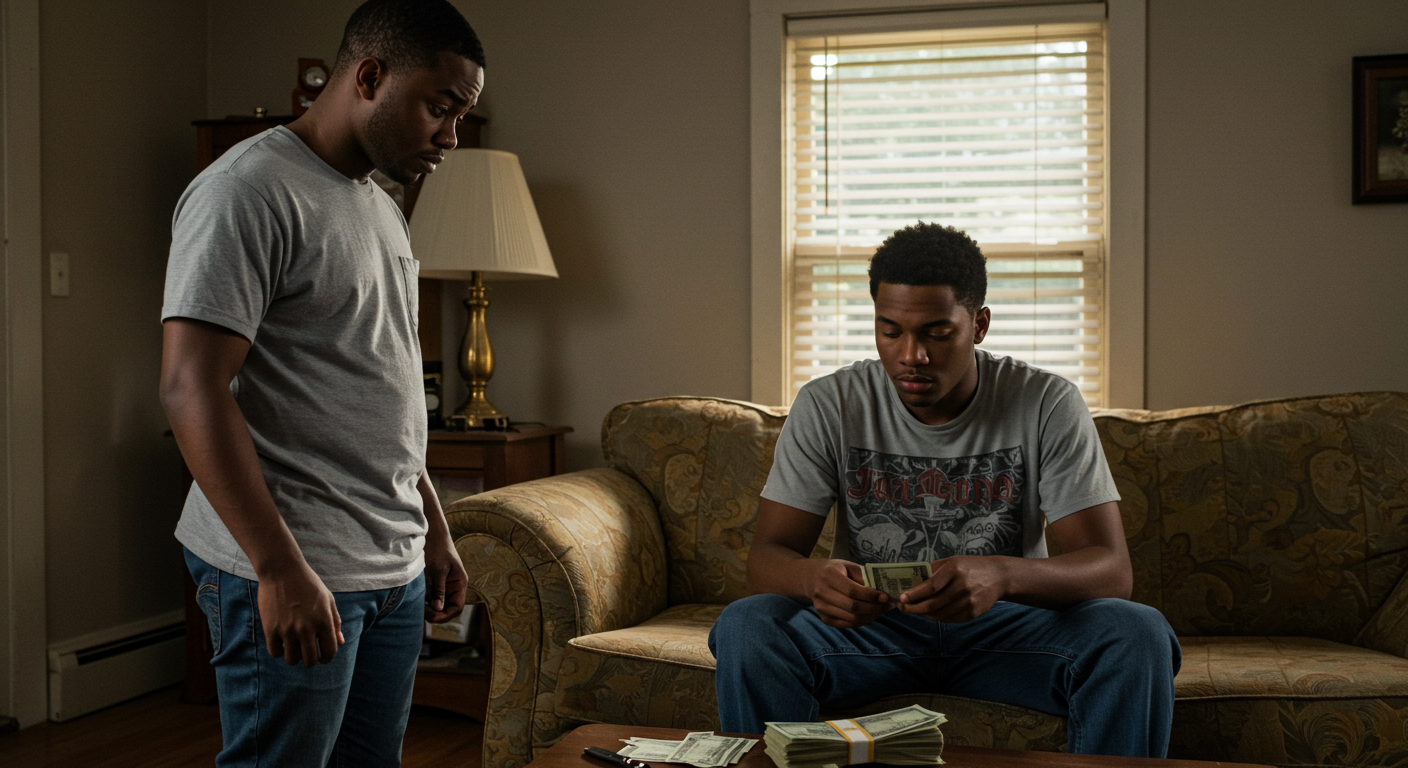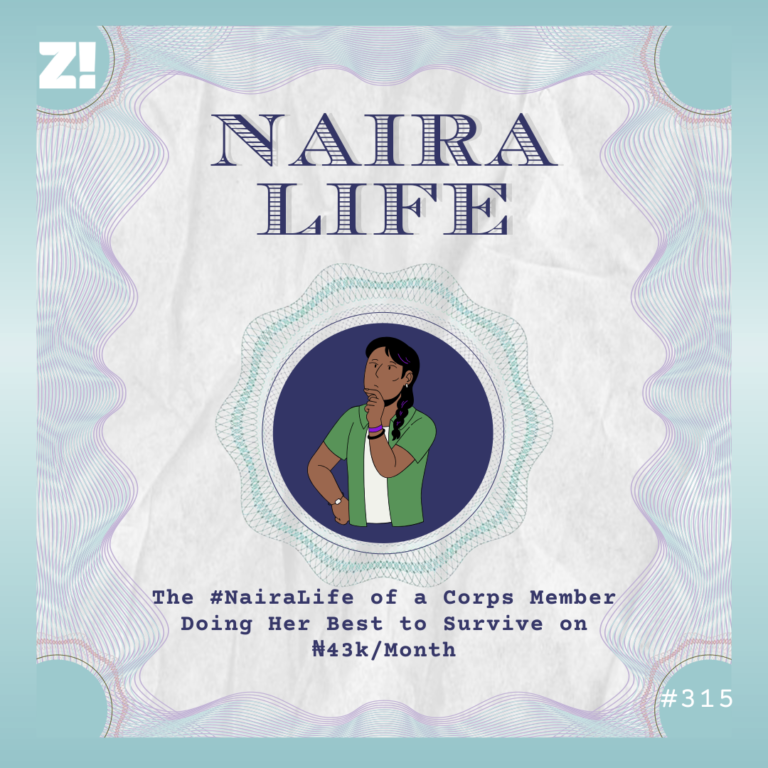Fola* (40) got diagnosed with bipolar disorder and depression at 19 after surviving an abuse-related mental breakdown. She shares her frustrations with how mental illness has affected her relationships, quality of life and her ability to parent her children.
TW: Sexual abuse, domestic abuse and self-harm.
As told to Boluwatife
I’ve lived with bipolar disorder for 22 years, but I wasn’t always like this.
Growing up, I was the regular fun-loving child who played with her siblings and stayed over with her cousins during school holidays. But then my uncle started sexually abusing me, and my “regular” life ended.
The first time it happened, I was 10 years old. He lived with my parents for a few months and constantly made me and my siblings touch him. Sometimes, he’d touch us. It didn’t occur to me to say anything, and it stopped when my family moved out of the area, so I just pushed it to the back of my head.
Three years later, my parents separated, and I had to go live with my grandmother. At this time, my uncle was an undergraduate. He also lived in my grandma’s house when he wasn’t at school. I was in JSS 3. The abuse started again and continued on and off for three years whenever he was home on holiday.
This time, it came with threats. He’d warn me to tell anyone unless he’d kill me. I think my mental health issues started accumulating from there. Whenever he wasn’t around, I simply forgot he’d abused me. Then he’d return and begin again. I now know from therapy that forgetting was my subconscious way of protecting myself. I just locked the memories away in my head.
One time in SS 3, I overheard him tell his girlfriend that he’d “destroy Fola’s life”, and I started having panic attacks. My heart raced for days, and I kept having thoughts of death. I was preparing for my WAEC exams, but I couldn’t concentrate. It was like all my bottling up eventually reached a breaking point.
I remember when I finally broke down. It was the day of my chemistry exam for WAEC. I walked into the lab, and my friends were waving at me to join them when I ran out. The school’s secretary had to call my mum to let her know I was behaving strangely. She took me home, and I grew worse. I couldn’t bathe, eat or talk to anyone, and I kept crying.
My mum thought I had acute malaria that was affecting my brain and took me to a hospital. I spent about three months there and honestly don’t remember most of what happened. There was a time when I was unconscious, and the doctors had to resuscitate me. When I started trying to cut myself and drag injections from the nurses, the doctor referred me to a psychiatric hospital.
It took two years of regular hospital visits and consultation for the psychiatric hospital to officially diagnose and start treating me for bipolar disorder and depression in 2001. The doctor didn’t admit me to the hospital, and it took that long for an official diagnosis because I’d blanked out a lot, and it took a while for me to remember specific details.
I also told my mum about what my uncle had done. The family was involved, and the matter ended with begging and assurances that it’d never happen again.
But the damage was already done. I was 19 years old, and suddenly, I was faced with the reality that I’d have to be on medication for the rest of my life.
It took a while for me to adjust. I’d take my medication religiously for a while, but then I’d get tired and refuse to take anymore. I relapsed three times before I accepted that I couldn’t run away from medication.
I almost emptied my family house during one of those relapses. I stopped my drugs and had this huge burst of energy. So, I decided I was going to clean and rearrange the house. It wasn’t even dirty, but I wasn’t thinking straight. I called an aboki and told him to pack everything, even the valuable things. Luckily, my mum returned before he could take them away.
Living with bipolar disorder is one thing. Navigating relationships with it is another thing entirely. At different points in time, men came to me wanting to date me, but once I told them about my sickness, they ghosted me. It didn’t even matter that I was on medication, and I was always upfront about my condition. They just disappeared.
Even when I decided to focus my attention on church and let relationships rest, this sickness still didn’t let me be. I joined the choir but couldn’t meet up with the early hours and vigils required as a church worker.
One of the side effects of my medication is excessive sleep. An average person sleeps eight hours, but I sleep 15-16 hours daily. That also affected my university studies, but fortunately, I still graduated.
I met my husband, Robert*, just after NYSC service year in 2012. We met in a keke, and he asked for my number. I remember he had one small torchlight phone, and I thought, “See the phone this one is using to toast woman?”
Anyway, we got talking, and I immediately told him about my condition. He didn’t mind. He even declared that my uncle was now his enemy and he’d never talk to him if he ever saw him.
Robert and I got married within a year of dating. My mum was happy I’d found a man willing to marry me with my condition because not many men would want someone with bipolar disorder in their house.
The early days of our marriage weren’t too bad. Robert understood that my medications left me tired and always oversleeping, so he helped with the chores. I also didn’t work, so he took care of the bills. I did try to run a salon, but the stress of standing for a long time affected me, and I had to stop.
Then, Robert started hitting me. It wasn’t regular, and it happened when he grew frustrated with my inability to do certain things. He’d complain about it, I’d try to defend myself, and he’d respond with slaps. We moved to a different state after marriage, and none of my family members were close.
Whenever he hit me, he’d quickly call my parents to report to them about how I was in the wrong — I think he was just trying to talk before I did. He never told them about the beatings, and I didn’t say anything either.
I had my first child in 2013. I have three children now, and each time I get pregnant, the doctors change my medication to prevent birth deformities in the kids and so that the trauma of birth and blood loss wouldn’t affect my mental health.
I’ve gone from using four tablets daily to eight, and my energy levels have dropped with each birth. I can’t concentrate well and can no longer do as much as I used to. As of 2015, I could still go to the market, cook in bulk and store soups in the freezer. Now, I can only cook soups thrice a month, and even that is with serious determination.
I had my last child in 2022, and my doctor instructed me not to have any more if I didn’t want to be totally useless.
My husband is aware of how much childbirth has affected me, but it still doesn’t change the fact that most of our issues are because of my condition. I do try my best. I run a provisions store, which I started in 2023, and I try to go in the evenings when I feel well enough to do so. But then my husband comes home from work and wants me to cook fresh food, but I can’t do it. It’s really affecting our relationship.
To be honest, he tries his best. When he’s in a good mood, he helps me out and tries to make sure I’m fine. He cooks, helps with the children’s school runs and provides for us. But when he’s tired, he takes it to the extreme. He says things like, “What kind of wife did I even marry?” and accuses me of faking my weakness. Does he think I’m happy that I can’t be much of a wife and mother to my kids? I can’t even be actively involved with my children.
Sometimes, I cry all day and question God. Like, why did this have to happen to me? But then I console myself that I won’t live forever. I’ll be gone one day, and the drugs will stop.
I guess Robert’s feelings are valid. I know my condition isn’t the easiest thing to manage, but this is a lifelong thing, and I wish he’d be more understanding. I know he has many female friends he goes to meet whenever he leaves the house angry, but I don’t even mind. If I’m not giving him the joy he wants, maybe it’s okay for him to find it elsewhere. There’s nothing I can do. I can’t stop my medication so I can have more energy because it’d only make my condition worse. So, what’s the point?
I’ve tried to talk to him about how I feel on numerous occasions. Sometimes, he listens. Other times, it’s like, “Abeg, I’m tired of all these stories.” I’m glad he’s even stopped hitting me. I finally told my mum last year, and she threatened to arrest him. He hasn’t hit me since.
In all this, I’m glad I have my family as a support system. Most days, I think less of myself and worry about the things I can’t do. But my mum calls me weekly to talk to and encourage me. She was there when I first broke down and constantly reminds me how far I’ve come. I survived, I have children, and my condition is manageable even with the side effects of medication. I’m grateful to God for the little wins.
*Names have been changed for the sake of anonymity.
NEXT READ: “Don’t Tell Anyone”: The Sexual Abuse Of Nigerian Boys




